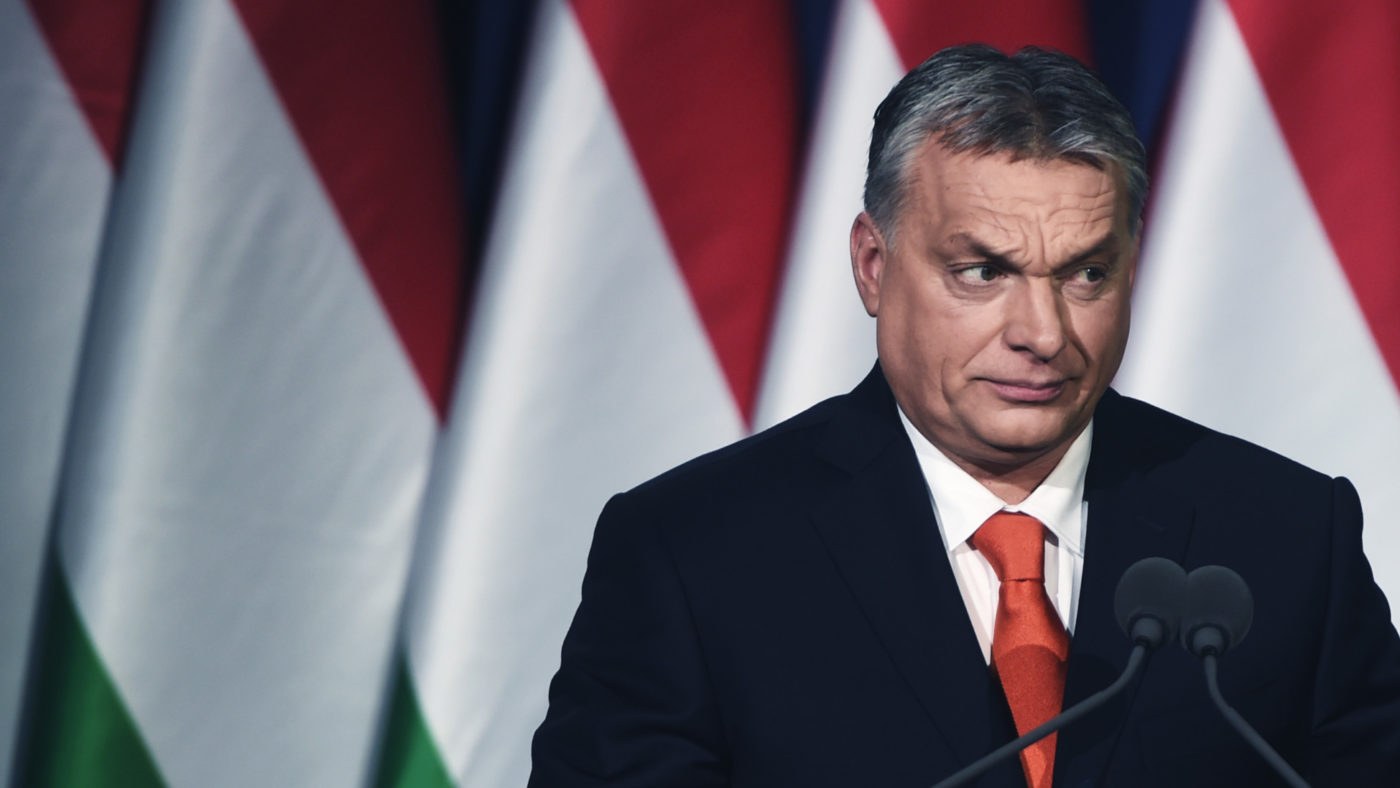This weekend’s defeat of Fidesz’s mayoral candidate, Zoltán Hegedűs, in the southern Hungarian city of Hódmezővásárhely carries important lessons for those who are concerned by the power of Central Europe’s populists. Since the fall of communism, the city, home to Prime Minister Viktor Orbán’s chief of staff, János Lázár (who also served as its mayor between 2002 and 2012), never had a mayor who was not from Fidesz.
Hódmezővásárhely’s newly elected mayor, Péter Márki-Zay, is a political novice whose campaign was backed by all opposition parties, including the once-neofascist Jobbik. His victory comes as an outcome of a surprisingly high turnout (62 per cent), after a campaign that mobilised voters across the spectrum, including disappointed Fidesz supporters. In itself, it does not spell doom for Fidesz in the parliamentary election on April 8, but it is a sign that Mr Orbán can be defeated in an election.
Not only that, he and his ilk can only be defeated at the polls. Hungary’s Prime Minister is never going to be impeached, embarrassed into resignation, or disciplined by European institutions. True, effective political opposition can seem difficult at times. In Hungary, Fidesz’s patronage network has permeated all levels of economic life and media landscape, with 90 per cent of all outlets controlled directly or indirectly by Fidesz.
Still, none of the Visegrád countries, not even Hungary, is comparable to Russia or Turkey. And an adverse political landscape is not an excuse for doing nothing, nor for ineffectiveness. Still, throughout the region, large chunks of the intellectual elite, drawing inspiration from the dissident era, see politics as an inherently corrupt enterprise and recoil at the very idea of campaigning and striking political deals. As a result, very few thoughtful, serious people enter the political arena, emptying the space for loudmouths, extremists and would-be authoritarians.
To a large extent, the current strength of Fidesz, Law and Justice Party (PiS) in Poland, and Andrej Babiš’s “ANO” party in the Czech Republic reflect the weakness and dysfunction of their opponents. In Hungary, the lack of a viable democratic opposition to Mr Orbán has created an opening for Jobbik to move into the political centre. Last week, in a vote in the Hungarian Parliament over a resolution condemning the EU’s rule of law procedure triggered against Poland, Jobbik sided with European institutions, citing concerns over undemocratic policies of the PiS government.
Throughout the region, the stakes are high. A strong mandate for Mr Orbán’s third term and a PiS victory in 2019 by the sort of margin suggested by its current lead in opinion polls, risk entrenching in both countries a form of governance that concentrates power in the hands of the ruling party, without effective judicial oversight or scrutiny by civil society, and relies on a pervasive system of party-centric clientelism, facilitated by heavily statist economic policies.
As Mr. Márki-Zay’s victory illustrates, a real political mobilisation is possible. But it also shows the importance of building a broad-tent alternative to Fidesz, as opposed to the current plethora of minuscule movements, parties, and initiatives, each operating independently. In its 2012 reform of the electoral system, Fidesz has strengthened majoritarian elements of Hungary’s electoral rules by increasing the number of single-member constituencies and redrawing the electoral map in its own favour. As a result, the 2014 election gave Mr Orbán a supermajority in parliament, which lasted until the following year.
But Fidesz’s weapons can be used against it, according to Zoltán Kész, an independent MP whose surprise victory in a 2015 by-election ended Mr Orbán’s supermajority. In order to succeed, opposition leaders will have to put their egos aside and work together. “If there is only one strong candidate in each constituency, Fidesz can be defeated,” Mr Kész tells me.
Contrary to most of the media attention that Fidesz, PiS, and ANO receive, their main sins are neither Euroscepticism nor intransigence on the question of immigration and refugee quotas – rather it is their authoritarianism. But that only strengthens the case for their opponents to fight back with effective political tools, while there is still time. Central Europe’s authoritarian populism will not go away unless voters reject it soundly at the polls, in favour of a better alternative. As this weekend has shown, such an alternative might not be far away.


